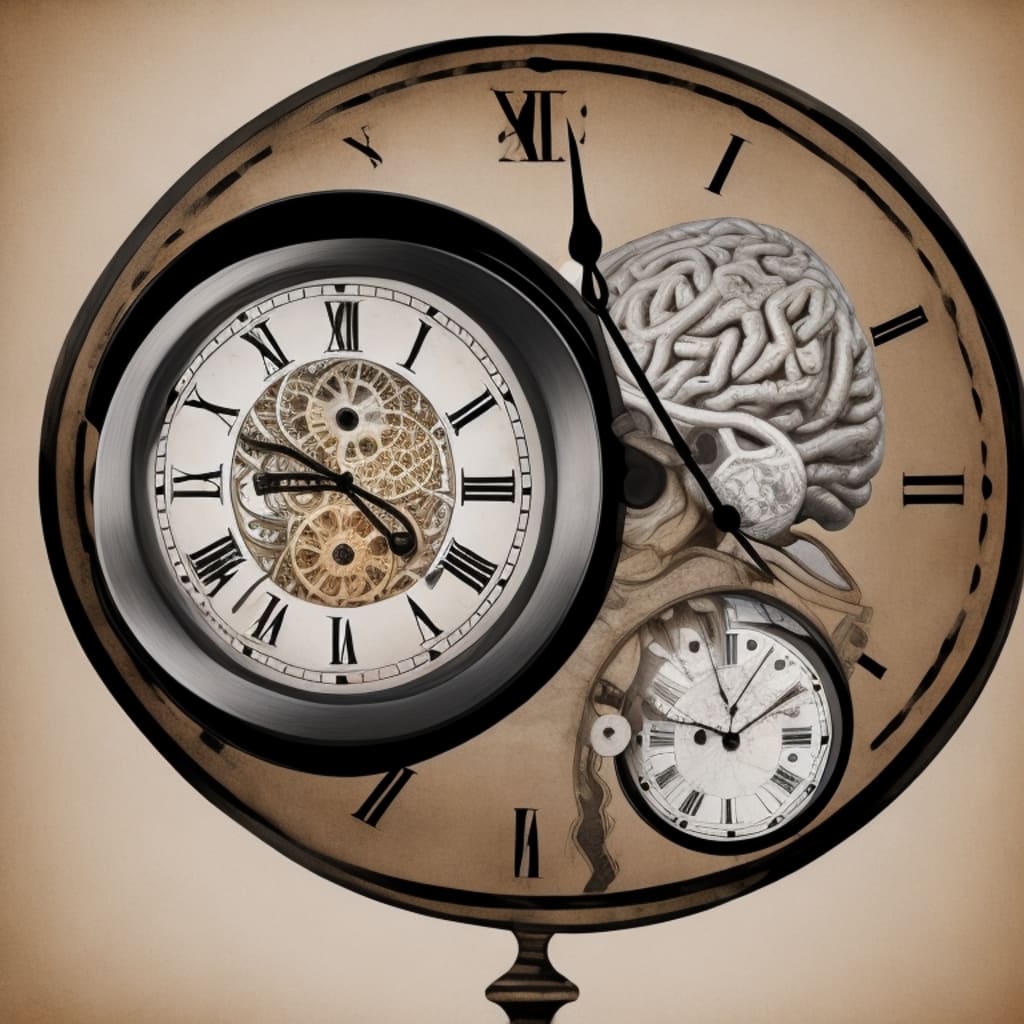The circadian rhythm
The brain and the clock

The circadian rhythm is the natural biological process that regulates the sleep-wake cycle and other physiological functions in living organisms. This cycle is controlled by a complex network of genes, proteins, and neurons in the brain that work together to maintain the body's internal clock and synchronize it with the external environment. The circadian rhythm is essential for maintaining optimal health and well-being, and disruptions to this cycle can have a significant impact on physical and mental health.
The brain plays a critical role in regulating the circadian rhythm. The suprachiasmatic nucleus (SCN), a small cluster of cells in the hypothalamus, is the primary pacemaker that controls the timing of the sleep-wake cycle and other physiological functions. The SCN receives input from the eyes, which send signals to the brain about the amount of light in the environment. This information is used to synchronize the internal clock with the external environment, ensuring that the body is awake during the day and asleep at night.
The SCN communicates with other areas of the brain and body to regulate the circadian rhythm. One of the most important pathways is the hypothalamic-pituitary-adrenal (HPA) axis, which controls the release of hormones such as cortisol and melatonin. Cortisol is a stress hormone that helps the body stay alert and awake during the day, while melatonin is a sleep hormone that helps the body prepare for sleep at night. The HPA axis is also involved in regulating other physiological functions, such as metabolism, immune function, and mood.
Other areas of the brain that are involved in regulating the circadian rhythm include the pineal gland, which produces melatonin, and the reticular activating system, which controls arousal and wakefulness. The pineal gland is sensitive to changes in light and dark, and releases melatonin in response to darkness. This helps the body prepare for sleep and maintain a regular sleep-wake cycle. The reticular activating system is involved in regulating the level of arousal and wakefulness in the brain, and plays a critical role in maintaining alertness during the day and promoting sleep at night.
Disruptions to the circadian rhythm can have a significant impact on health and well-being. For example, shift work and jet lag can disrupt the sleep-wake cycle and lead to sleep disturbances, fatigue, and other health problems. Chronic disruptions to the circadian rhythm have been linked to an increased risk of obesity, diabetes, cardiovascular disease, and other health problems. In addition, disruptions to the circadian rhythm have been linked to mood disorders such as depression and anxiety.
There are several strategies that can be used to help regulate the circadian rhythm and promote optimal health and well-being. One of the most effective strategies is to maintain a regular sleep-wake cycle, with consistent bedtimes and wake times. This helps to synchronize the internal clock with the external environment and promote optimal sleep quality. Other strategies include exposure to natural light during the day, avoiding bright light exposure at night, and engaging in regular exercise and physical activity.
In conclusion, the circadian rhythm is a complex biological process that is regulated by a network of genes, proteins, and neurons in the brain. The brain plays a critical role in regulating the sleep-wake cycle and other physiological functions, and disruptions to the circadian rhythm can have a significant impact on health and well-being. Understanding the circadian rhythm and the role of the brain in regulating this process can help individuals take steps to promote optimal health and well-being.






Comments
There are no comments for this story
Be the first to respond and start the conversation.